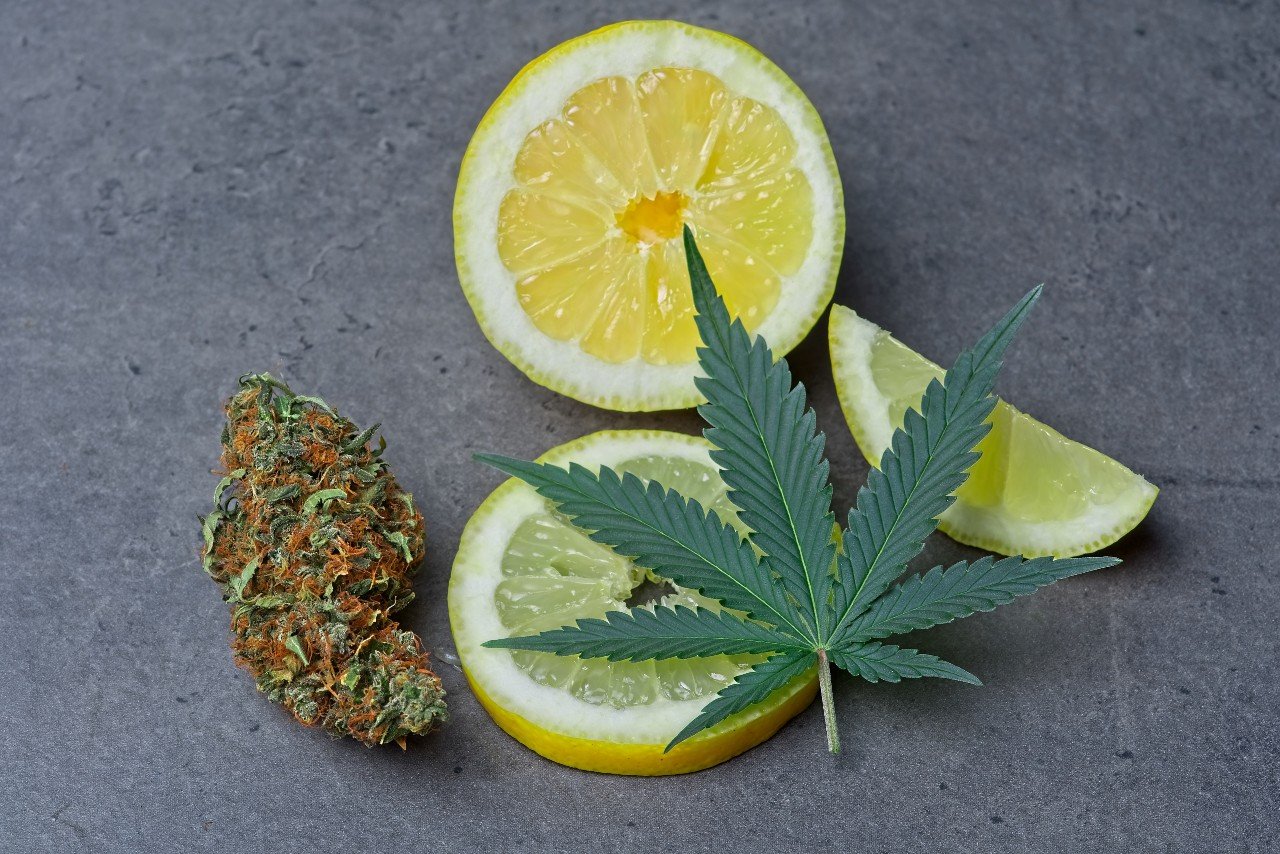If you’re interested in cannabis, you’ve probably noticed that everyone is talking about terpenes these days. They give the different strains their unique aromas and flavors and potentially contribute to the entourage effect. The cannabis community seems to increasingly believe that terpenes can affect how cannabinoids interact with the human body. With all of this fuss about cannabis terpenes, it’s easy to forget that they’re not exclusively found in this particular plant.
Other plants have terpenes, too. Even some insects produce terpenes. They’re found all over the place in products that you might see every single day, such as beer, perfumes, and fruits. Terpenes are currently the only components of the cannabis plant that have been recognized by the Food and Drug Administration (FDA). Terpenes have been qualified as a food-safe additive because of their popularity and widespread use in many different products. However, the FDA’s recognition was made in general for terpenes and is not specific to the cannabis plant.
Even though the FDA does recognize terpenes as a food-safe additive, the organization hasn’t necessarily made any statement that they have medicinal or therapeutic benefits. This is in line with their general reluctance to approve cannabis to treat any disease or condition. Still, though, they have released a statement of support for scientific research into cannabis and cannabis-derived products’ medicinal properties. Some cannabis-derived products have been approved, but they’re only available with a prescription and only for particular ailments.
Much of the research into the potential benefits of cannabis has been focused on cannabinoids until this point, but that may change in the coming years. As we learn more about terpenes, there’s growing interest in what exactly they are and what they might be able to do for us. To deepen your understanding of how these organic compounds might interact with the body, learn more about cannabis terpenes.
What Are Terpenes?
Found in fruits, flowers, other plants, and even some insects, cannabis terpenes are organic compounds. Wherever they’re found, they give organisms scents and tastes. In cannabis, trichomes are contained in the resin glands or trichomes, where cannabinoids are primarily located. Trichomes are the tiny crystal-like things you see on the surface of your cannabis flower.
One of the first reasons people became interested in terpenes is that they can affect your high. Also known as the entourage effect, there’s a belief that cannabinoids interact differently with the human body depending on the entourage of terpenes they bring with them. This may help explain the mystery of why different strains are often associated with other effects.
Cannabis-Derived Terpenes
There have been over 150 different terpenes identified in the cannabis plant. This is in addition to the 100 or more different cannabinoids that have been identified. It’s thought that the cannabis plant may have developed these terpenes to help protect itself from predators, bacteria, and fungus while also attracting pollinators.
It may not just be bugs and small organisms affected by terpenes, either. Some people have long believed that aromas can lead to physiological responses within the human body. This is part of the reason aromatherapy and essential oils have become so popular. More recently, some scientists have proven that we can experience physiological changes based on aromatic influences.
In other words, the terpenes that cannabis plants developed to attract pollinators and repel pests may also do something for us. Cannabis-derived terpenes are any terpenes that are created naturally by the cannabis plant, then harvested from that plant. These types of terpenes are often the preferred choice by most people because they’re pulled directly out of a plant and not created in a laboratory. This is important to people who believe in a whole-plant approach to cannabis and understand that the vital molecules in the cannabis plant may have more beneficial and synergistic effects when they’re all working together.
Lab-Created Terpenes, Also Known as Synthetic Terpenes
The obvious difference between synthetic terpenes and cannabis-derived terpenes is that the synthetic ones are created in a lab. In other words, they’re not natural terpenes, and they haven’t been found in or derived from cannabis. These lab-created terpenes are still considered to be cannabis-related by the FDA, which is a bit strange because many of the terpenes in cannabis are also found in many other types of plants and because synthetic terpenes are, by definition, not derived from the cannabis plant.
Though many people still prefer natural, cannabis-derived terpenes, synthetic terpenes have some benefits. For example, manufacturing these lab-produced versions of cannabis terpenes makes it much easier to reproduce specific terpene profiles. While the terpene profiles of strains may not be completely consistent from one plant to the next, the same lab processes will necessarily lead to the same terpenes time and time again.
This is especially beneficial when it comes to scientific research. As scientists attempt to learn more about terpenes, it’s nice for them to be able to have complete certainty that there are no unplanned or unknown variables in the form of differences between the terpenes they’re studying. The accuracy, consistency, and reliability of synthetic terpenes mean more dependability when it comes to scientific research or anything else that requires complete precision.
What Causes Inconsistency in Cannabis-Derived Terpenes?
Several factors may lead to different terpenoid profiles among different plants, even if they are of the exact same strain and come from the same batch of seeds. Consider the following:
-
- Where and how a cannabis plant is grown may impact the terpene profile.
- Terpenes are sensitive to sunlight and heat, so the plant’s terpenes will be affected by how hot they get and how much light they get.
- The nutrients a plant gets affect how it grows. Since it’s hard to be 100% sure that plants get the exact same soil, water, and other environmental factors, there are likely to be some differences.
- How a cannabis plant is handled will affect the terpene profile. Light and heat continue to affect the cannabis flower even after it’s been harvested.
- We can’t be positive that all seeds are exactly the same, even if they come from the same plant. There are some nuances that go into this, which is how we end up with different phenotypes of the same strain. It’s also part of what makes cannabis so special and interesting– every plant is unique on some level.
- Where and how a cannabis plant is grown may impact the terpene profile.
Buy Terpene-Rich Strains at Chronic Therapy
Here at Chronic Therapy, our team is proud to operate two dispensaries in the state of Colorado. We have a dispensary in Cortez and a dispensary in Wheat Ridge. No matter which of our two Colorado dispensaries you visit, you’ll find a wide variety of strains, each one with its own unique terpene profile. Ask a budtender to help you navigate the dispensary menu and talk to you about the terpenes in each of our strains. Stop by today, or Contact us to learn more!
Featured Image: Gleti / Shutterstock

